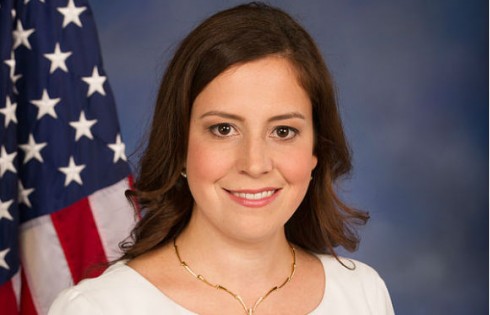
Two senators this week lambasted the way in which public universities track data and called for sweeping reforms, but some questioned whether a more detailed approach might jeopardize students’ privacy.
In a bipartisan show of support, Sen. Ron Wyden, D-Ore., and Sen. Marco Rubio, R-Fla., said they hope to upgrade the way in which universities track information on what individual campuses have to offer, such as job skills, careers created, and information on expected financial outcomes of various academic disciplines.
As it stands, the senators said at a news conference in Washington D.C., the data is tracked on a federal level, offers no streamlined standards, and paints an incomplete picture.
“You’ve really got a system that is failing a lot of families,” Wyden said. “At best, the information that students get today is incomplete.”
The senators said their Student Right to Know Before You Go Act would help replace the U.S. Department of Education’s current system for tracking data at universities across the nation with state-based programs individually configured to give more specified and useful information to students and parents, such as how much debt they may have accumulated by the time they graduate and future earnings potential.
Rubio compared the plan’s requirement for states to produce such information to nutrition labels the government requires on food, which he said gives him the opportunity to decide what he puts in his body.
Not everyone is thrilled with the senators’ proposal, however.
Obtaining detailed information may require unnecessary surveillance of students, said Amy Jones, education policy counsel and senior advisor for the House Committee on Education and the Workforce. Jones also spoke at the event, hosted by the American Enterprise Institute and New America Foundation.
Jones said she foresaw a nightmare scenario in which the government inspects intimate details about an individual throughout the course of their life, and then mandates that children be raised a certain way based upon information gathered about successful people’s childhoods.
“It’s not enough just to say, ‘Oh, information technology has improved … so, therefore, we don’t need to worry about student privacy,’ ” Jones said. “The issue is that the federal government just doesn’t need to know that much information about an individual person.”
Rubio said Jones misses the point.
“This is not a mandate,” he said. “This is not designed to discourage kids from going to one school over another, or going in to one career over another. It’s simply information that allows us to make wise decisions.”
Rubio said the act would extend those wise decisions to how lawmakers plan to deal with the nation’s debt. Likewise, Wyden noted education reform will be central to the debate about the impending “fiscal cliff,” or the prediction of a greater economic slowdown if the government permits the expiration of tax cuts and some spending reductions.
“After sequestration, the first of many sequestrations to come, we’re going to be living in the politics of scarcity and we’re going to choose between Medicare and college,” said Dr. Anthony Carnevale, director of The Georgetown University Center on Education and the Workforce, who also spoke during the event.
Rubio said building an educated and prepared workforce goes hand-in-hand with producing the economic growth necessary to deal with the nation’s climbing debt.
“I think that we have a national interest in insuring that we are producing a workforce capable of fueling [that] kind of economic growth,” Rubio said. “If we don’t grow this economy, we will never get our hands around this debt problem.”
In a joint op-ed published this week in USA Today, Wyden and Rubio continued their efforts to push for the act’s success, in part by dissing annual college rankings put out by organizations such as U.S. News & World Report.
“Too often, these reports … overlook inputs like debt burdens and post-graduation success in finding good-paying, meaningful jobs,” the senators wrote. “ … This is a little bit shocking considering we live in a data driven world. … Yet students don’t have access to data that could help them make real-world decisions about their futures and policymakers are given an incomplete picture when making decisions about how to best allocate tax dollars.”
Fix contributor Ryan Lovelace is a student at Butler University.
IMAGE: Gage Skidmore, Flickr
Click here to Like The College Fix on Facebook.





Please join the conversation about our stories on Facebook, Twitter, Instagram, Reddit, MeWe, Rumble, Gab, Minds and Gettr.